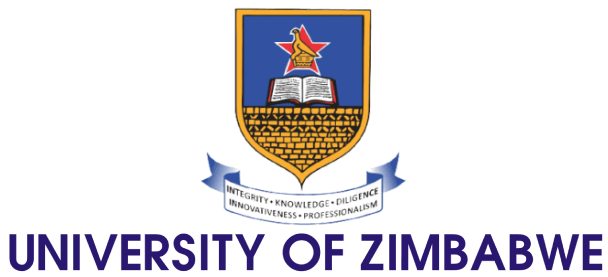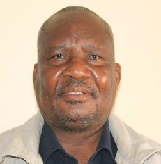Chairperson
Prof Billy Mukamuri
Qualifications: B.A (Hons), University of Zimbabwe (1987), MSc Environmental Sciences, University of Tampere, Finland (1991), Certificate, Global Environmental Politics, North Carolina State University (1992), Certificate, International Law, North Carolina State University (1992), Licentiate in Social Sciences, University of Tampere, Finland (1993), Dr of Social Sciences, University of Tampere, Finland (1995) (Cum Laude).
Bio:
Bio: Professor Billy Mukamuri is the Deputy Dean in the Faculty of Social and Behavioural Sciences and a lecturer in the Department of Community and Social Development. The Department offers degrees in gender, criminology and society, Community Lifelong Learning and Development, Socio-Ecological Systems and Development Practice, Industrial Sociology; Sociology and Social Anthropology; Social Innovation; Smart Technology Applications and Community Development. His key research interests include social ecological dynamics in communal systems in semi-arid Zimbabwe. Key research questions included understanding life histories of communities; technology adoption, agricultural change, including the effects of colonial centralisation of settlements; deforestation; soil erosion; population, health (human/livestock) and human welfare. During this time, Billy became more interested and involved in research focusing on how culture influenced environmental protection and agricultural practices, the latter focusing more on soil conservation. He has more than 30 years of research experiences in Zimbabwe and southern Africa dates dating back to 1987 when he joined a team of UK based researchers in a research project that looked at socio-ecological dynamics associated with human-livestock-natural resources and ecosystems health in Zvishavane district’s Mazvihwa area. The research activities attracted the interest of the Ford Foundation which began supporting a Social Forestry project centred afforestation using indigenous tree species in Chivi and Zvishavane Districts, Zimbabwe. This was a revolutionary project because prior afforestation efforts by government largely prioritised use of exotic tree species, key among them, Eucalyptus, widely known as gum trees. The project promoted indigenous tree species as participatory research had pointed to their multifunctional values, which included high quality fire (less smoke); soil fertility and water retention (which made them important as trees in fields); medicinal; fodder, shade and fruit (available throughout the year), among others. The project provided Billy with coordination and ethnographic and participatory research experience which culminated in a D.Phil. thesis entitled “Making Sense of Social Forestry in Zimbabwe” in 1995 funded by the Finnish Academy of Social Sciences. In 1995 to 2000, Billy Mukamuri joined the Institute of Environmental Studies (IES), an interfaculty unit of the University of Zimbabwe, as a Temporary Full-Time Research Fellow. The position was sponsored by both the International Development and Research Centre (IDRC-Canada) and Centre for International Forestry Research (CIFOR) and carried out research in several districts of Zimbabwe, including Chimanimani, Mutoko, Chiredzi and Binga. The position entailed coordinating and carrying out research on value of trees and impact of macro-economic policies in Zimbabwe and southern Africa (Zimbabwe, Mozambique and Malawi). During this time, Billy managed and supervised a number of D.Phil. and Masters students, some of whom have become prominent leaders in universities and governments in the region. Also important was coordinating and supervising post-graduate students sponsored by the Tropical Soil Biology and Fertility programme. An interesting component of the research involved local perceptions of soil fertility, including traditional beliefs and practices such as using witchcraft to enhance soil fertility and agricultural productivity. While sounding primitive, the study uncovered the existence of critical practices that encapsulated strong beliefs against use of inorganic fertilisers and pesticides-contrary to official discourse and narratives of the supremacy of western agriculture over African ones. While at IES, Billy coordinated both DPHIL and Masters research projects on wetlands and indigenous forest management in communal areas of Zimbabwe. The latter project involved use of traditional medicines in both urban and rural areas and its implications for conservation. Through the IES, Billy amassed project coordination and supervision skills of both local and international students from Canada, South Africa, Kenya, Mozambique, and Finland. The former task involved accounting for project funds and writing up project reports for donors, as well as liaising with District Officials in areas where the studies were conducted. In 2001, Billy Mukamuri joined the Centre for Applied Social Sciences (CASS), as a researcher and lecturer and became both Chairman and Director of the Department and its independent Trust in 2010. Duties included teaching, research, and administration. While at CASS, Billy Mukamuri has taught and supervised over 120 masters’ students (under the Masters in Social Ecology programme) and over 30 D. Phil candidates (local and international). Professor Billy Mukamuri has been a Principal Investigator/Consultant in very high-profile projects funded and implemented by both the Zimbabwe Government and international donors e.g., Zimbabwe National Sugar Adaptation Strategy (EU); Impact Evaluation of the Harmonised Cash Transfer programme (UNICEF); the Zimbabwe Resilience Building Fund (ZRBF; Forestry Forces Project (EU); Zimbabwe National Forest Policy (FAO/GOZ); National Wetlands Utilisation Guidelines (EMA); Zimbabwe Cyclone IDAI Recovery Project (UNOPS/World Bank); Farm Mechanisation and Adoption of 4 Wheel Tractors (CIMMYT); Appropriate Scale Farm Mechanisation in Zimbabwe and South Africa (CIMMYT); Social Environmental Safeguards in the Mid-Zambezi Valley (UNDP), among others. He is also part of the ongoing Research Platform-Production Conservation in Partnership (RP-PCP) established in 1997 which is studying human-wildlife interactions at the edge of Transfrontier Conservation Areas. RP-PCP led by CIRAD and includes most State Universities in Zimbabwe (UZ; NUST; BUSE; CUT; GZU and Lupane State University) and universities in Mozambique and South Africa.
Research Interests: Teaching Social Ecology, Institutions and Policy studies, Expert in Scenario Planning, Qualitative research methodologies, PI and coordinator of big national multidisciplinary research projects, Grant Management, Supervising Masters and DPhil students, Developing courses and modules, Member of Faculty Higher Degrees Committee, Internal and External Examiner (DPhils, MPhils), Community Engagement and conflict management techniques.
Email: This email address is being protected from spambots. You need JavaScript enabled to view it.
Phone number: +263 772 112 774
Publications and Research Profiles: https://scholar.google.com/citations?hl=en&user=-7bSoToAAAAJ

